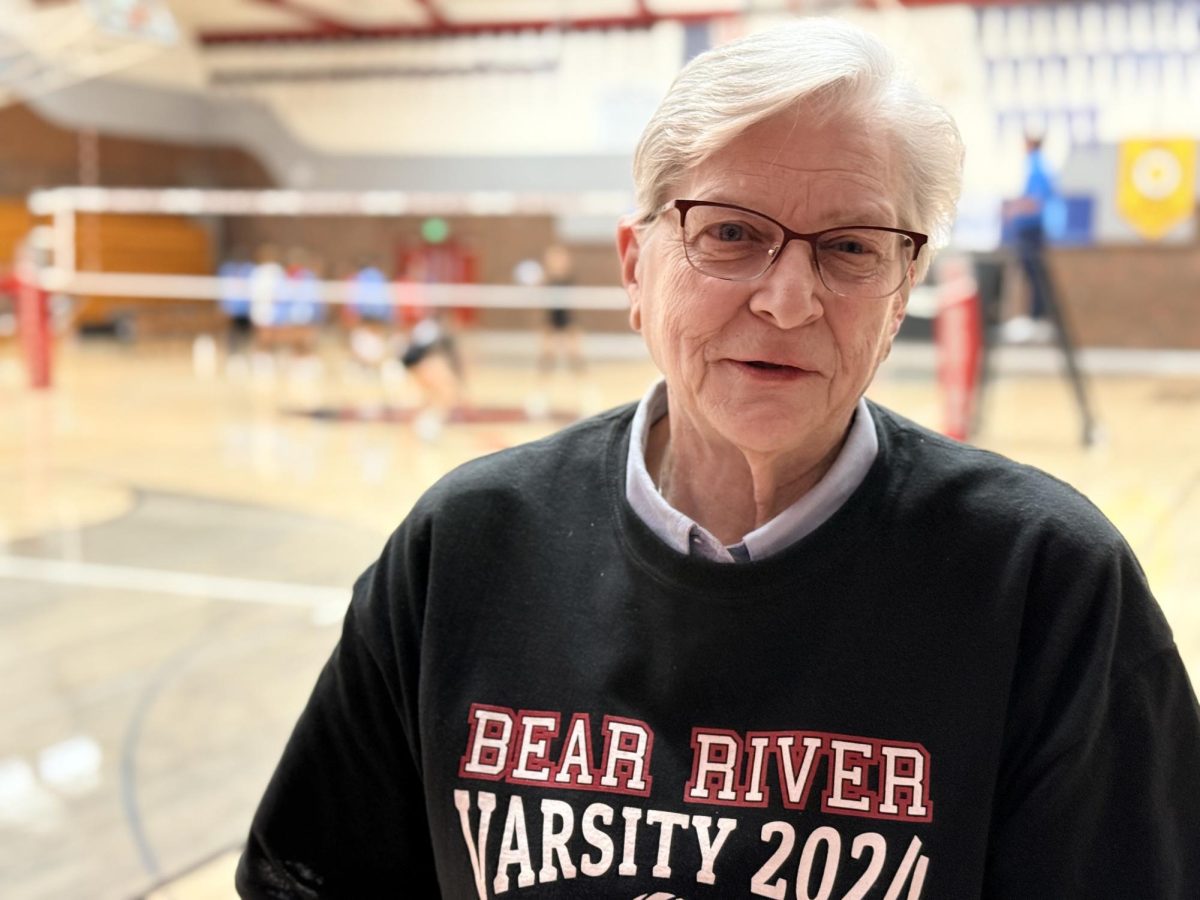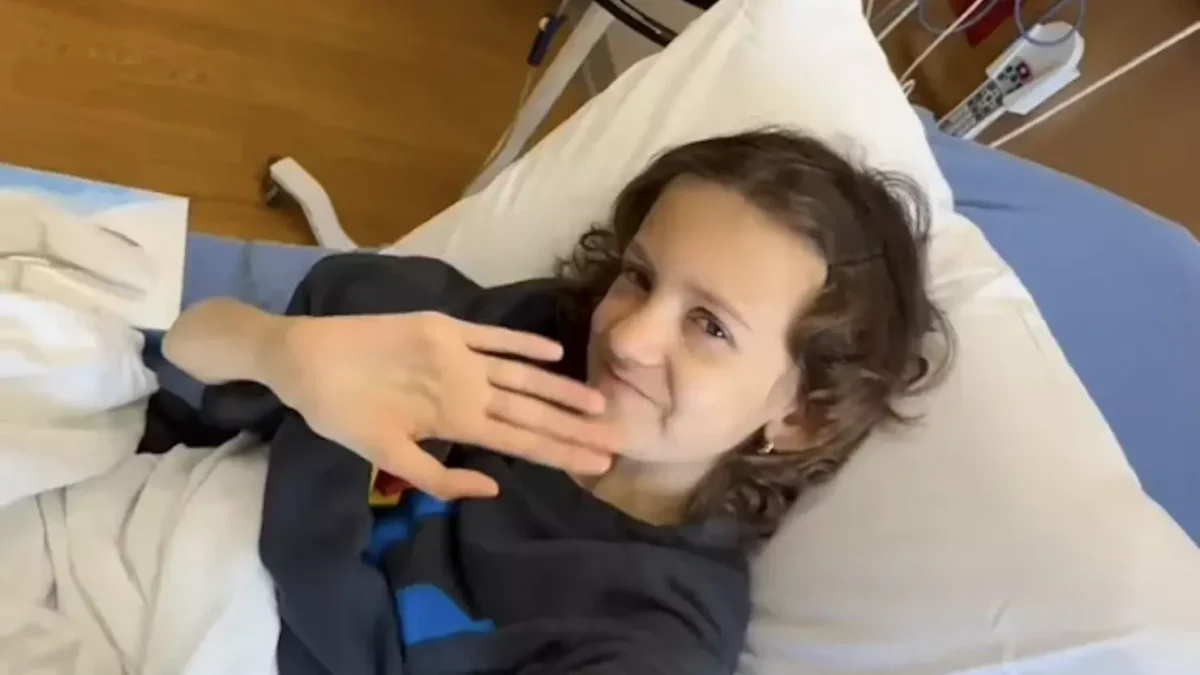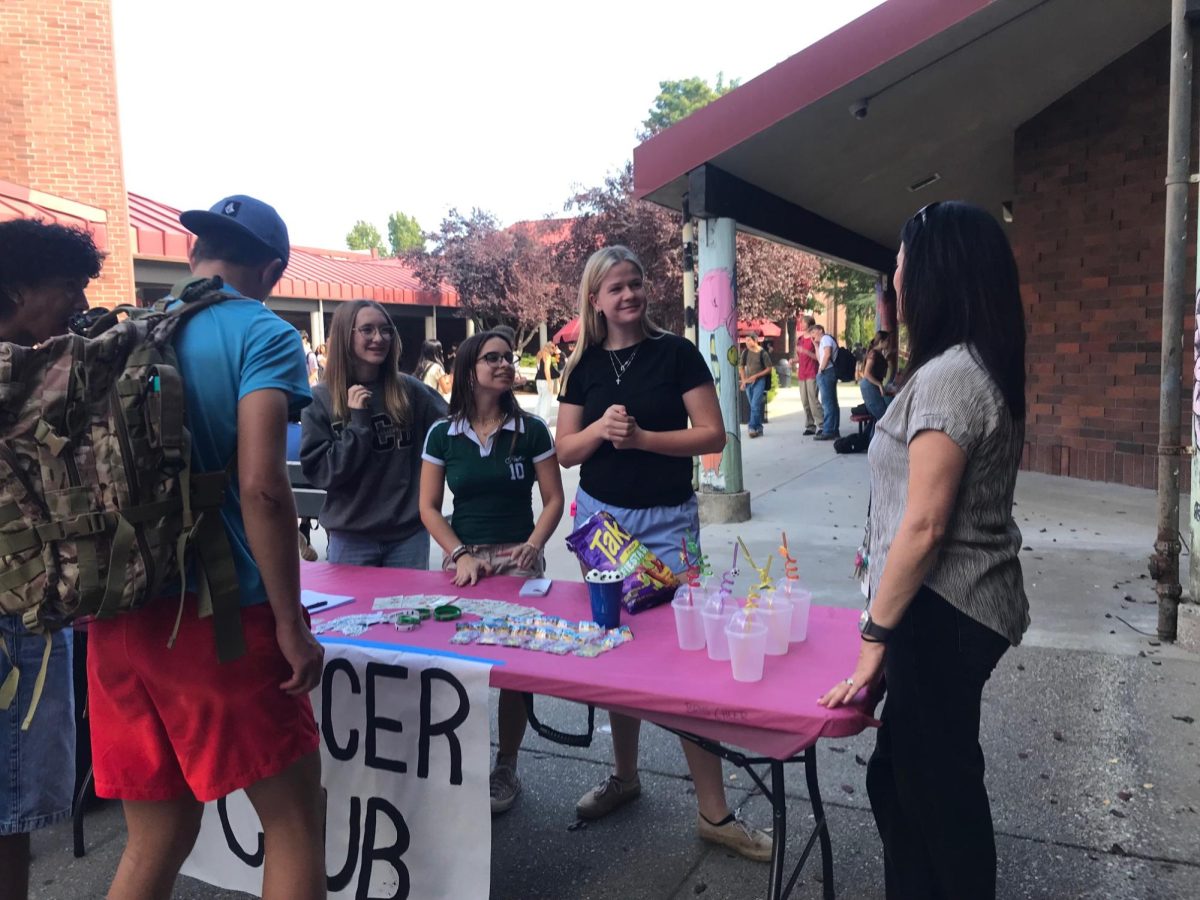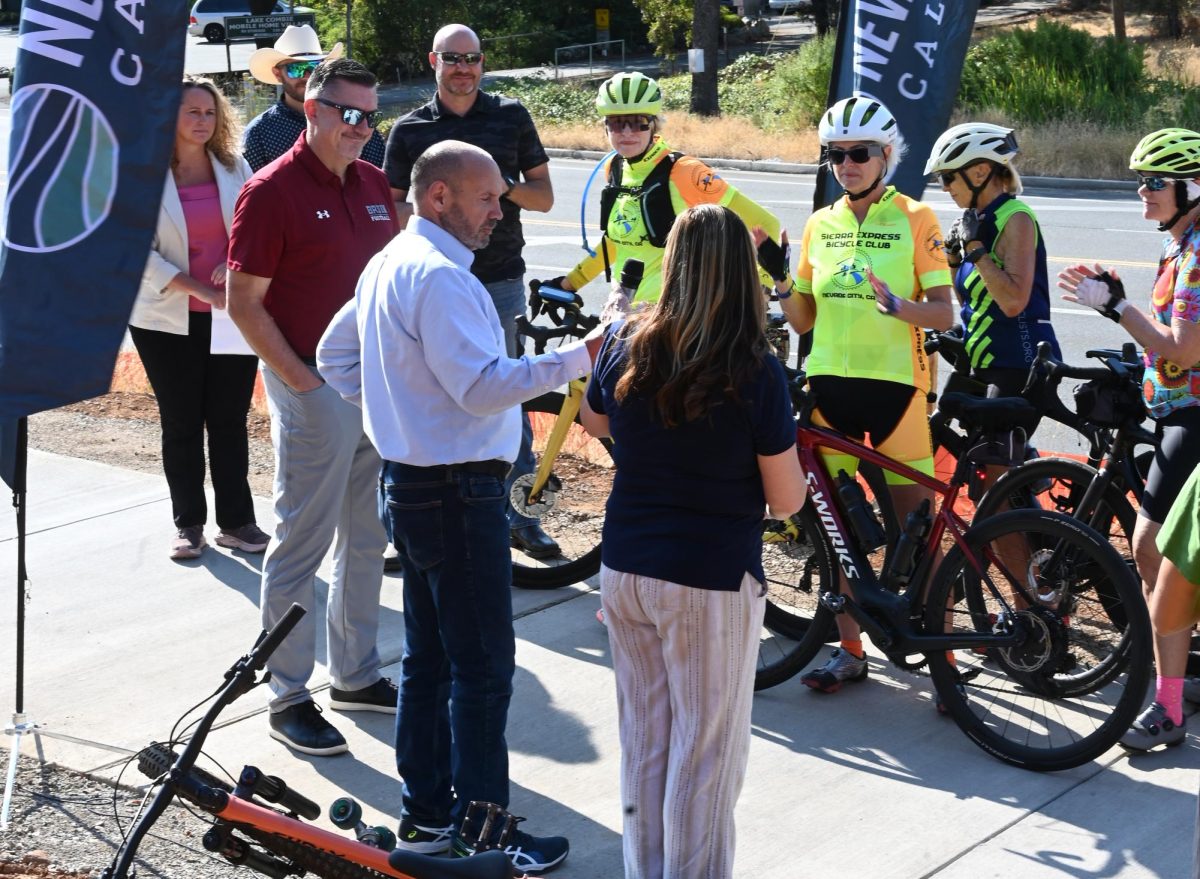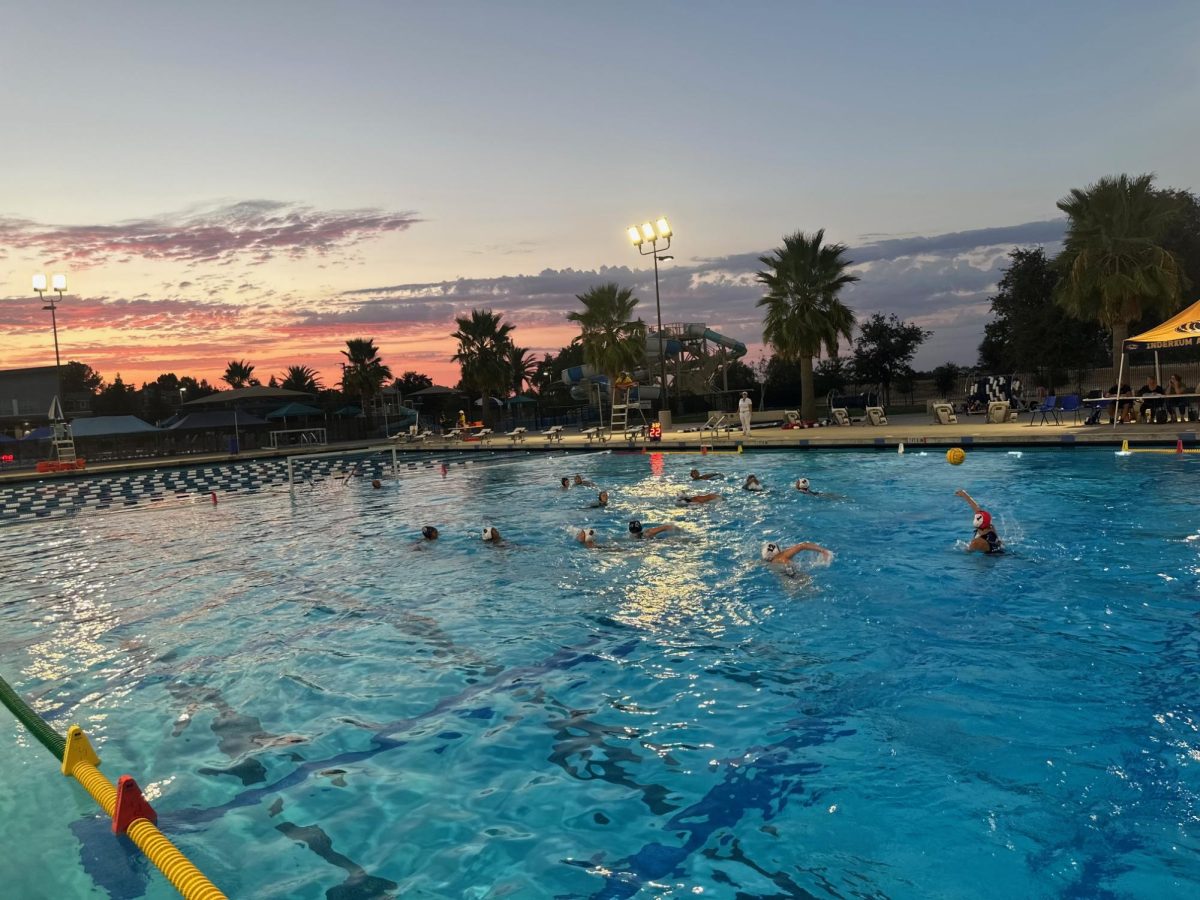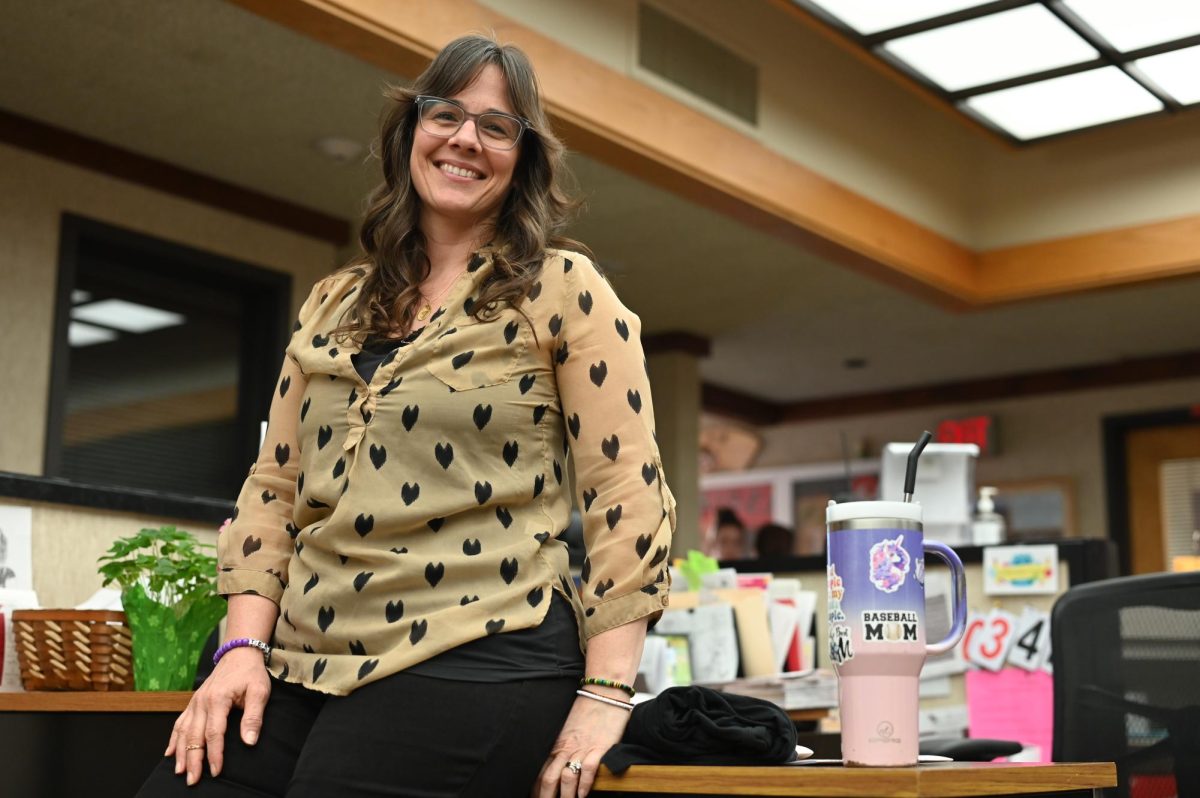Bear River has put measures into place to insure the health of its students, from required Physical Education and Health classes to a salad bar in the cafeteria. Are administrators also making efforts to protect the mental well-being of their students?
Environment has a significant effect on the development of young people, so Bear River is affecting hundreds of students every day. Bear River’s Principal Dr. Amy Besler gave her take on one of the most influential pieces of school.
“One of the most positive things about school in terms of students’ mental health is the social aspect of what goes on in a school environment,” Dr. Besler said. “Simply being around other people, making friends, and connecting with caring adults can make a huge difference for adolescents.”
Junior Layla Ray said that she wanted to emphasize that while friends can be your greatest asset, they can also be your downfall.
“Friends can benefit your positive moods, but they can also bring your moods down … depending on who you surround yourself with,” Ray said, “You can surround yourself with the positive friends, the friends that keep you up and keep you going, or you can surround yourself with the friends that bring you down and judge you.”
Finding peers who both share your interests and influence your mental health in a positive way is simple for some, but for others it is a difficult thing to achieve.
“For students who are introverts, sometimes the ‘business’ of school can be very challenging and they can be overwhelmed by it all,” Bear River’s school psychologist Ms. Vicky Stanton explained.
Sophomore Leo Jackson gave advice based on her own life about how to make friends when you’re not extroverted.
“I’m an introverted person, but I also put myself out there where I was like, ‘oh yes, I’m going to make friends this year,’ that’s what I started out with freshman year,” Jackson said. “Look at me now. I have more than five friends now, I have like a million and a half! That’s a good thing.”
The consensus seemed to be that friends can help you through hard times, but adults said that they wanted to make sure that students don’t only rely on their peers for support.
“One big concern I have about students’ mental health at school is the frequent habit of teens to want to ‘fix things’ without asking for help from adults,” Stanton said. “At school, if a teen is having a problem, very frequently they will go to their friends for help — of course, that’s what friends are for, and it isn’t necessarily wrong — but if it is a serious problem, often the friends don’t have the tools to ‘fix things.’ And it doesn’t occur to them to turn to the adults in their lives for help.
Jackson mentioned that she knows that adults at school are eager to help, but that she feels that many are not aware of this fact.
“I know we have a school psychologist here,” Jackson said. “… I feel like, in the beginning of the year, they should make it clear that if you’re going through something and you want to talk to somebody, we have school therapists. Literally just sign up for an appointment with her. She’ll take you in, and she is not a judgemental person. She is wonderful, and she will help.”
What sort of problems can these adults help students solve? Dr. Besler elaborated on school-related stress.
“When students find themselves highly stressed by academic or other school-related pressures, the impact can be negative,” Dr. Besler said.
Julianne Henry, the leader of the STARS program, agreed. STARS stands for Student Assistants Resources and Services. The program provides support to students.
“School certainly can cause stress,” Ms. Henry said. “Students can get overloaded with academic activities, or academic tasks, and extracurricular activities, and just the demands of being a high school student can be stressful. That can impact students’ mental health.”
Ray talked about how school increases her stress levels.
“Last year I went though a major anxiety and depression mode,” she said. “It began with my friends and then it also added on with my schoolwork because I wasn’t doing my schoolwork because I was in a depressed state, so then being friendless on top of anxiety and schoolwork, and then coming into this year it was Starlite and schoolwork and work.”
Jackson shared her observations about Bruin anxiety.
“There’s a bunch of mental health issues you can get into, like depression, or suicidal thoughts or such and such, all the bad stuff that you hear about,” Jackson said. “Stress from schoolwork, intense schoolwork, because sometimes we’re taught like we’re adults, and then sometimes we’re taught like we’re children. So, it can be really stressful sometimes.”
Dr. Besler explained what the school is doing to try to counteract some of these negative effects.
“We provide enriching activities that give students an outlet and help them bond with peers and adults …” she said. “We also have many services in place for students who need additional support with mental health issues, such as our STARS program, counseling support, and group counseling. We created our new Wellness Center as a place on campus where students can gain a sense of calm and relaxation, as we know their days are incredibly hectic and demanding.”
Ms. Henry gave some more information about the mission of the STARS program.
“The STARS program … provides support to students through one-on-one counseling, group counseling, also some links to some community-based agencies such as drug and alcohol treatment, smoking cessation, we also offer referrals to Community Beyond Violence — it’s an agency that helps students that have been the victim of any kind of assault or harassment,” she explained.
Ray described a different school-run program that has helped her through her high school career.
“I’m a part of the class called RY, which is ‘Reconnecting Youth,’ and I’ve been in it for two years,” she said. “I see such an improvement for so many people. … It’s a small classroom with about twelve kids, and they bring you together and by the end of the year you’re like one big family.”
Reconnecting Youth Teacher Daniel Bussinger talked about what his goals are for the program.
“As the leader, my job is to first create an atmosphere in the class of support for each other and being comfortable being supported by others,” Mr. Bussinger said. “We build trust. I bring up topics of interest and invite guest speakers who are experts in certain areas and we discuss and learn from each other in order to succeed better in school and in life. There is a recognition that mental health issues need to be addressed, and this is one effective way of doing that.”
This program has helped Ray, and she said that she wants it to help more people like her.
“What I want this school to do is to have more classes like that, because it’s just twelve students in this whole entire school that are getting helped when there are so many more that can be helped,” Ray said.
Jack Kendall, a junior, said that what she wants is for mental illness to be treated as seriously as physical illness.
“Mental health days,” she said, when asked what she wants the school to do to help. “Like, they offer you something if you’re going through a thing. … If they could have days off where they could just catch up with themselves and not have to deal with the classroom, or have an alternative to a big classroom filled with a bunch of people to a one-on-one or a place out of class where you can go and just silently sit.”
As well as taking advantage of what the school offers, there are also things you can do to protect your own mental health.
“Make sure you’re doing things to kind of nurture yourself as well as take care of your responsibilities and do what you have to do,” Ms. Henry said. “It’s a lifelong journey, and when teenagers can learn it early, and learn that balance and learn how, when they’re starting to feel sad, or upset or anxious, how to kind of self correct, that’s just invaluable information. That’s great to learn early, and will serve them well their whole lives.”


